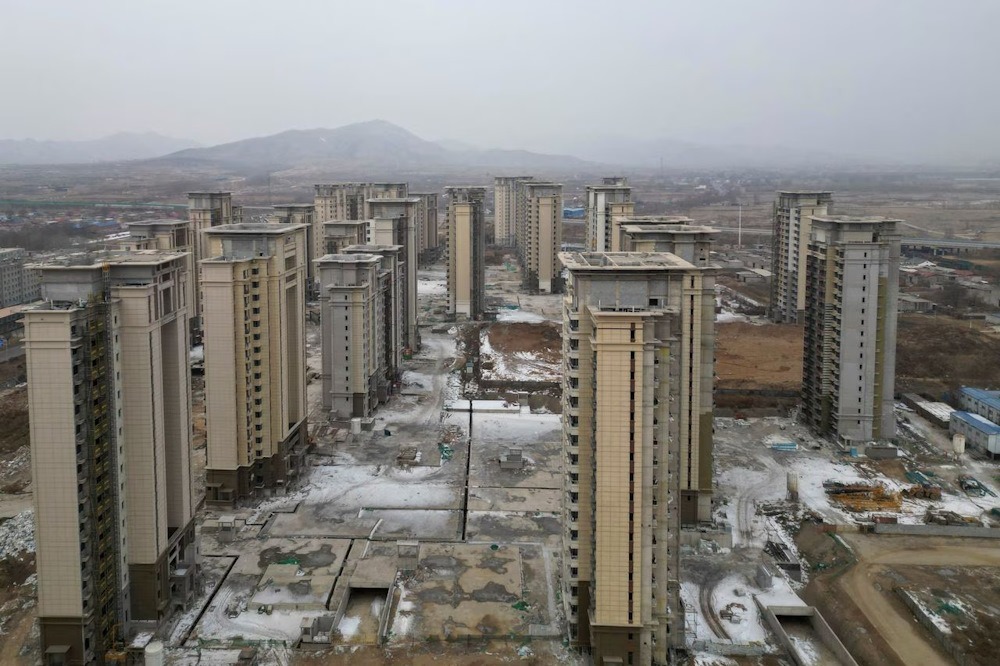China’s local governments to search for funding

China’s struggling property market has prompted local governments to search for additional sources of funding. China’s property crisis has had a significant impact on local governments, severely reducing a crucial source of income due to the decline in land sales. Fiscal reform plans have raised expectations for relief, but economists remain skeptical about the progress made so far. Struggling with limited funds and mounting debt, regional governments are exploring new sources of revenue to make up for declining income from land and taxes. Analysts express concern over the deteriorating fiscal conditions, which does not bode well for China’s struggling economy.
China’s tax revenue for the first seven months of 2024 experienced a 5.4% decline compared to the previous year, which can be attributed to the ongoing economic challenges and tax reduction measures. According to data from the Ministry of Finance, there has been a significant decline of over 20% in the proceeds generated by local government land sales. On the other hand, China experienced a significant increase of 12% in its fiscal income from nontax items, which mainly consisted of proceeds from state-owned assets sales, fines, and confiscated property. The majority of this income was allocated to local governments. In contrast, there was a 3.7% decrease in the previous year, 2023.
In a recent note, economists from Nomura pointed out that the sustained double-digit growth of nontax revenues indicates that cash-strapped local governments may have turned to increasing penalties to offset the decline in land sales revenue. In July, nontax revenue experienced a significant increase of almost 15% compared to the previous year, maintaining the strong growth rate observed in June, according to calculations made by Nomura using official data.
Although regional governments may find some relief in nontax income, economists caution that this source of revenue is not sustainable in the long run. Furthermore, due to its lack of transparency, this could further undermine the already fragile consumer and business confidence. There is a problem with the lack of reliable data regarding sources of nontax revenue. This raises questions and invites speculation, particularly in light of recent local news reports detailing cases where authorities imposed hefty fines for minor offenses.
However, there is no agreement on the factors behind the increase in nontax revenues. According to analysts at Galaxy Securities, additional fines are not expected. They pointed out that penalties usually contribute around 9% to 12% of China’s annual nontax income.
According to some officials and economists, the main factor behind this trend is the process of converting local government assets into monetary value. Since last summer, cities throughout China have been intensifying their efforts to sell and lease state assets. These assets range from unused buildings and parking lots to mineral reserves. The strategy has been highly effective in affluent regions such as Jiangsu province, where it played a major role in a significant increase of approximately 30% in nontax revenue from January to May, according to official data.
According to Wenyin Huang, a director at S&P Global Ratings, the central government has been encouraging local governments to tackle their debt burdens. In some regions with high debt pressures, extreme measures like ‘selling everything to pay off debts’ have been considered. Given the current circumstances surrounding revenue sources, finding a solution to the debt problem is proving to be quite a challenge. A district government in Chongqing city recently caused quite a commotion by establishing a task force with the aim of disposing of its assets at all costs in order to pay down debt. This move, metaphorically referred to as “smashing iron pots and selling the steel,” has certainly grabbed attention.
Analysts have expressed uncertainty regarding the remaining profitable assets of local governments and the identity of potential buyers. According to recent government reports, there have been instances where local administrations have been transferring assets between different entities, and requesting state-owned firms to acquire these assets. Beijing appears to have acknowledged the situation, as officials in important meetings have expressed their commitment to assisting in bearing the financial responsibility.
The proposed measures aim to increase central government transfers to regional administrations, provide a greater portion of consumption-tax revenue to local governments, and expand their ability to levy taxes on a wider range of items. However, experts argue that the plans are lacking in specific information, with minimal progress being made. “The fiscal challenges this year seem to be more severe and persistent than in previous years, despite the high market expectations for proactive fiscal support,” noted analysts from Goldman Sachs.
The challenging economic situation adds complexity to the situation. Reviving the property sales decline would give local governments a much-needed boost in revenue, according to S&P. However, the recovery also hinges on China’s decision to pause the expansion of fiscal-relief programs introduced since 2018.
According to S&P, the local governments’ self-generated operating revenues have been negatively impacted by the programs, which include lower tax rates and tax refunds, among other things. Without these, revenue growth could have been significantly stronger across the board. According to S&P’s Huang, the ability to generate revenue is being hindered by macroeconomic challenges. Huang also mentioned that any delays in revenue recovery could further complicate efforts to stabilize the rising debt.

